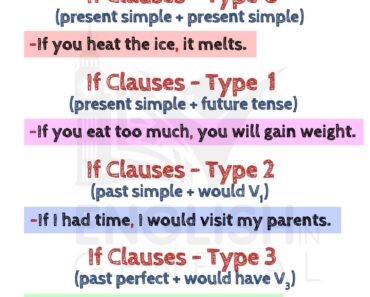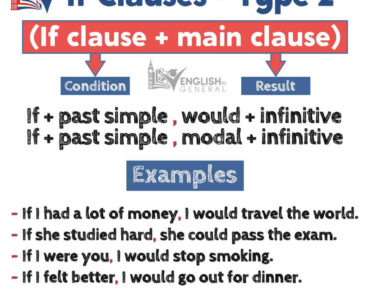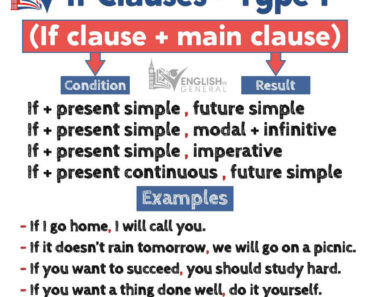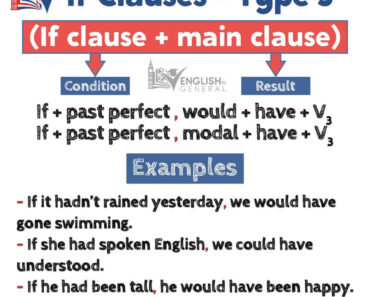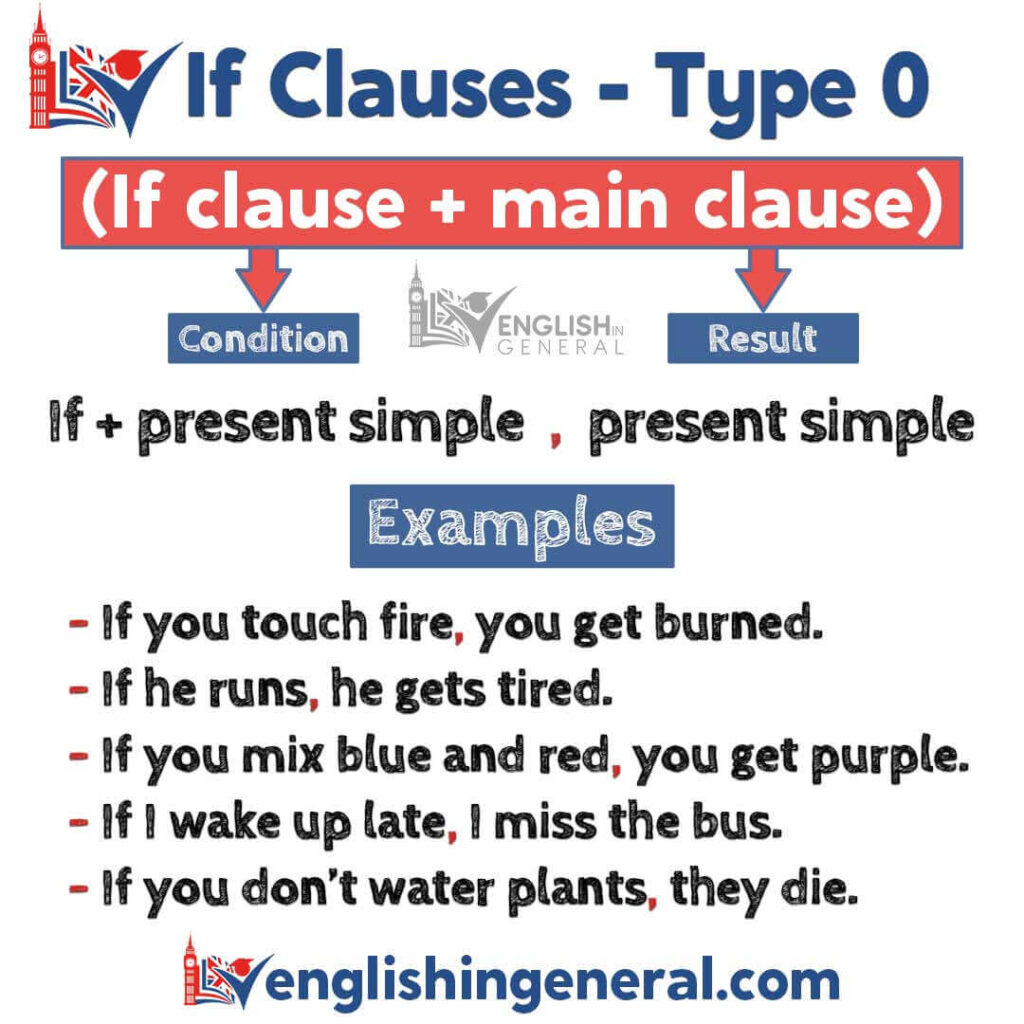
When do we use the zero conditional sentence (if-sentence type 0)?
We generally use conditional clauses for ideas or situations that depend on another. Accordingly, they are linked to a condition, whereby four types of conditional clauses are differentiated depending on the probability or possibility. If something always happens under certain circumstances, the zero conditional sentences, the conditional sentence, or if-sentence type 0, is used. Compare:
This type of condition phrase is used for things that always happen under certain circumstances. So they are facts. Some examples of using the Zero Conditional are:
“If you start the engine, you hear that strange sound.” (When you start the engine, you hear this strange noise.)
“If you drink a glass of milk before you go to bed, you sleep well.” (If you have a glass of milk before going to bed, you sleep well.)
In certain cases, if ’can be replaced by‘ when ’or‘ whenever ’:
“You call that number whenever you have a problem.” (Call this number whenever you have a problem.)
“When he goes on a trip, he always takes a lot of pictures.” (Whenever he travels, he takes a lot of pictures.)
How are the zero conditional sentences (if-sentence type 0) formed?
A conditional sentence always consists of two sub-sentences. One of them usually begins with the word “if” (or as already mentioned above with “when” or “whenever”) and specifies the condition, while the other gives the result. It doesn’t matter which of the two sub-clauses begins the sentence; however, if ‘if’ is at the beginning, there must be a comma between the two clauses. Note:
The rule for forming the zero conditional sentence
Since this type does not refer to the future or the past, the simple present is used:
‘If’ (when / whenever) + present simple, the sentence with the present simple
Additional examples for the different sentence order
Also, note the order of the sentences:
“If you press that button, the fuse blows.” (If you press this button, the fuse blows.)
- Here with a comma.
“The fuse blows if you press that button.” (The fuse blows when you press this button.)
- You don’t need a comma here, because “if” is in the second part of the sentence.

